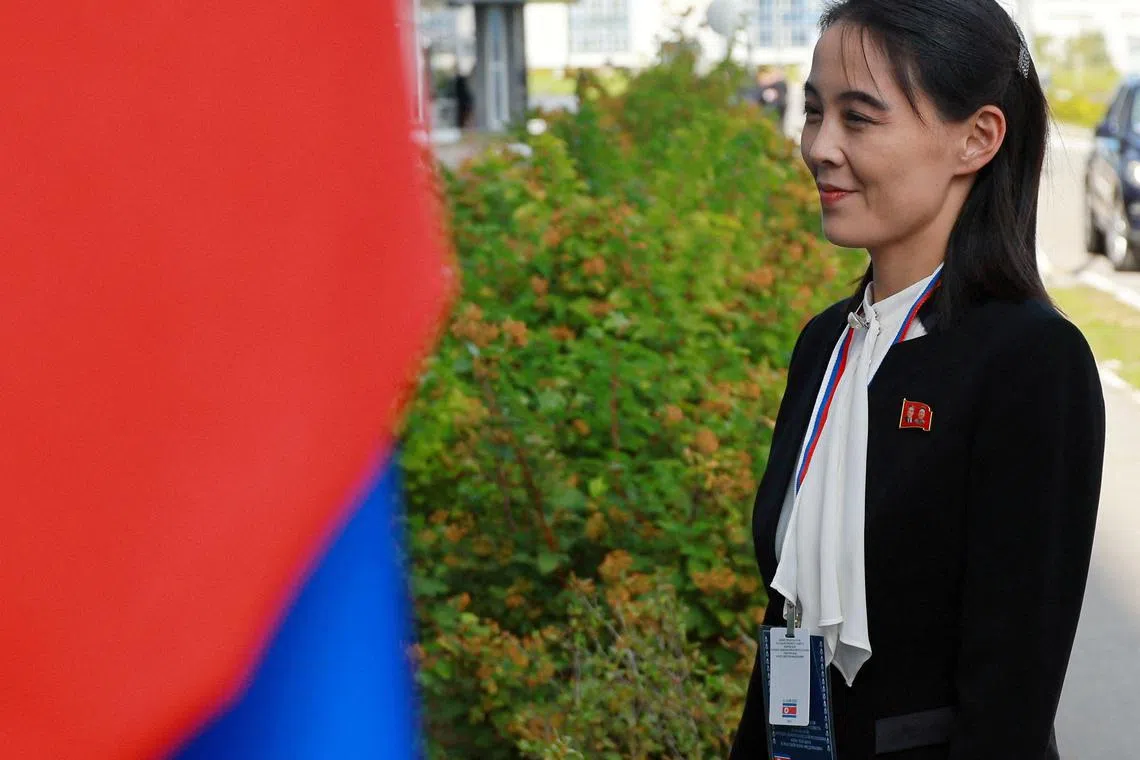North Korean leader’s sister warns of new response against S. Korean loudspeakers, leaflets
Sign up now: Get ST's newsletters delivered to your inbox

Kim Yo Jong, sister of North Korea's leader Kim Jong Un, said the move is a prelude to a very dangerous situation.
PHOTO: REUTERS
Follow topic:
SEOUL – The influential sister of North Korean leader Kim Jong Un warned of a new response against South Korea if the South kept on loudspeaker broadcasts and scattering leaflets amid simmering tensions.
“If the ROK simultaneously carries out the leaflet scattering and loudspeaker broadcasting provocation over the border, it will undoubtedly witness the new counteraction of the DPRK,” Ms Kim Yo Jong said in a statement late on June 9 carried by state news agency KCNA, using the initials of the official names of South and North Korea, respectively.
South Korea resumed loudspeaker broadcasts
“This is a prelude to a very dangerous situation,” said Ms Kim, a vice-department director in the ruling Workers’ Party, referring to the South’s loudspeaker broadcasts.
In response to the broadcasts, the North sent about 310 trash-carrying balloons overnight, said South Korea’s military on June 10.
Ms Kim had said in her earlier statement that South Korea would “suffer a bitter embarrassment of picking up waste paper without rest, and it will be its daily work”.
The latest batch of waste-loaded balloons sent late on June 9 contained scrap paper and plastic, with no toxic material detected so far, the Yonhap news agency said, citing the Joint Chiefs of Staff.
The decision to resume the broadcasts as a form of psychological warfare was made after North Korea began launching on June 8 about 330 balloons with trash attached, with about 80 of them dropping over the border, South Korea’s military said.
Pyongyang started sending balloons carrying trash and manure
North Korea has shown some of the angriest reactions towards the leaflet campaign and the loudspeaker broadcasts, in some cases firing weapons at the balloons and speakers.
South Korea stopped the broadcasts under an agreement signed by the two Koreas’ leaders in 2018, but tensions have mounted since then as Pyongyang pushed ahead with weapons development.
South Korea’s broadcasts include world news and information about democratic and capitalist society with a mix of K-pop music. The sound is believed to travel more than 20km into North Korea.
The South Korean Parliament passed a law in 2020 criminalising sending leaflets to the North, but activists did not stop, and the law was struck down by the Constitutional Court in 2023 as an undue limitation on free speech.
The broadcasts, a tactic that dates back to the Korean War, infuriate Pyongyang, which previously threatened artillery strikes against the loudspeaker units unless they were switched off. REUTERS, AFP

